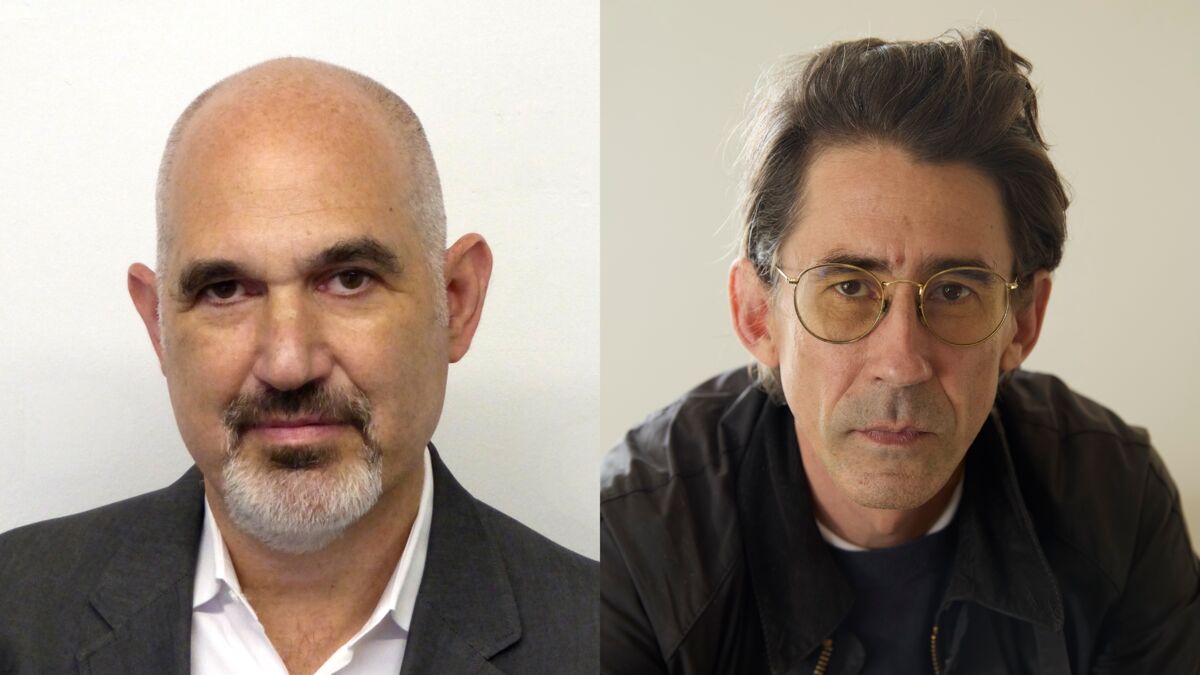
Credit: Photo of David Joselit by Mary Ellen Carroll; Photo of Cheyney Thompson by Roe Ethridge.
In Conversation: David Joselit & Cheyney Thompson on ‘Francis Picabia. Eternal Beginning’
On the occasion of the exhibition ‘Francis Picabia. Eternal Beginning,’ and the release of the exhibition catalogue from Hauser & Wirth Publishers, please join us for a conversation with art historian David Joselit and artist Cheyney Thompson to discuss Picabia’s late-career reinvention, questions of humor, satire and abstraction as well as always new beginnings.
Organized in collaboration with the Comité Picabia, and co-curated by its President, Beverley Calté, with art historian Arnauld Pierre, ‘Francis Picabia. Eternal Beginning’ is the first major exhibition to focus on the compelling final years of the French avant-garde artist’s prolific career. The presentation features close to 30 paintings created by Picabia between 1945—when he returned to Paris from the South of France—and 1952, the penultimate year of his life.
Copies of ‘Francis Picabia: Eternal Beginning’ will be available for purchase at the event.
This program is free; however, reservations are required.
Click here to register.

About Francis Picabia
Francis Picabia was born François Martinez Picabia in Paris, to a Spanish father and a French mother. After initially painting in an Impressionist manner, elements of Fauvism and Neo-Impressionism as well as Cubism and other forms of abstraction began to appear in his painting in 1908, by 1912 he had evolved a personal amalgam of Cubism and Fauvism. In 1915—which marked the beginning of Picabia’s machinist or mechanomorphic period—he and Marcel Duchamp, among others, instigated and participated in Dada manifestations in New York. For the next few years, Picabia remained involved with the Dadists in Zurich and Paris but finally denounced Dada in 1921 for no longer being ‘new.’ The following year, he returned to figurative art but resumed painting in an abstract style by the end of World War II.
About David Joselit
David Joselit began his career as a curator at The ICA in Boston from 1983-1989. He has taught at the University of California, Irvine, Yale University where he was Chair of the History of Art Department from 2006 to 2009, and the CUNY Graduate Center. He is currently Arthur Kingsley Porter Professor of Art, Film, and Visual Studies at Harvard, and was department Chair between 2021 and 2024. Joselit is author of ‘Infinite Regress: Marcel Duchamp 1910-1941' (MIT, 1998), ‘American Art Since 1945’ (Thames and Hudson, 2003), ‘Feedback: Television Against Democracy’ (MIT, 2007), and ‘After Art’ (Princeton University Press, 2012). He co-organized the exhibition, ‘Painting 2.0: Expression in the Information Age,’ which opened at the Brandhorst Museum in Munich in 2015. Joselit is an editor of the journal OCTOBER and writes regularly on contemporary art and culture. His book ‘Heritage and Debt: Art in Globalization’ (MIT Press 2020) won the 2021 Robert Motherwell Book Award. His most recent book is ‘Art's Properties’ (Princeton University Press, 2023).
About Cheyney Thompson
Cheyney Thompson (b. 1975) is a visual artist whose work in painting, sculpture, and exhibition design examines how technical and social systems and historic context condition the work of art’s visibility and legibility. At the core of Cheyney Thompson’s practice is an analytical approach and commitment to the examination of painting—its production, distribution and presentation in contemporary conditions. He often applies strict sets of principles to the creation of his work, using rules-based systems as generative tools to minimise the subjectivity of creative decisions.
Thompson was the co-founder of Scorched Earth (2007), along with Sam Lewitt and Gareth James, a journal and curatorial project which brought together scholars and artists for regular meetings and seminars centered around a possible critical history of drawing. Conceived of as a spatial journal, the small storefront ran for the length of the one-year lease, with exhibitions produced in collaboration with the speakers.
Thompson recently translated Jean Clay’s 'Certain Aspects of Bourgeois Art: Non-intervention' for OCTOBER. He has also translated work by Jean Clay as part of a workshop on the work of Martin Barré in 2013. Thompson has published his own writing in 'Mousse' and 'Artforum,' and has contributed to a collection of writings on Martin Barré and other artist monographs.
Forthcoming Events: New York
1 / 2

